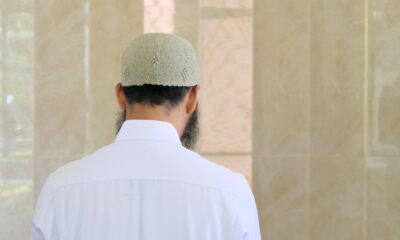When the one performing ablution bleeds, becomes wounded, or a limb of his is broken, and he ties it with a cloth or splint, and does not have the ability to wash the limb or wipe over the limb, then wiping over majority of what he has tied the limb with is necessary. And wiping on the outside of the bandage (of the one bleeding) is sufficient.
Wiping is like washing, so:
- It won’t be restricted by a time period, nor will tying the splint in the state of having Wudhu be a condition.
- To wipe the splint of one foot while washing the other is permissible.
- Wiping doesn’t become void by the splints falling off before heeling.
- Replacing the splint with another is permissible, while repeating the wiping over it (after replacing it) is not necessary, however repeating it is better.
Wiping is also permissible:
- When ones eye becomes swollen or infected and he is instructed not to wash his eye.
- When ones nail breaks and he applies medicine and paste on it, or a bandage, and its removal hurts him.
And if wiping hurts him, he will leave it.
Wiping the socks, the splint and the head are not in need of an intention.

 Delay in the repayment of debt by a wealthy person is a form of oppression
Delay in the repayment of debt by a wealthy person is a form of oppression 










